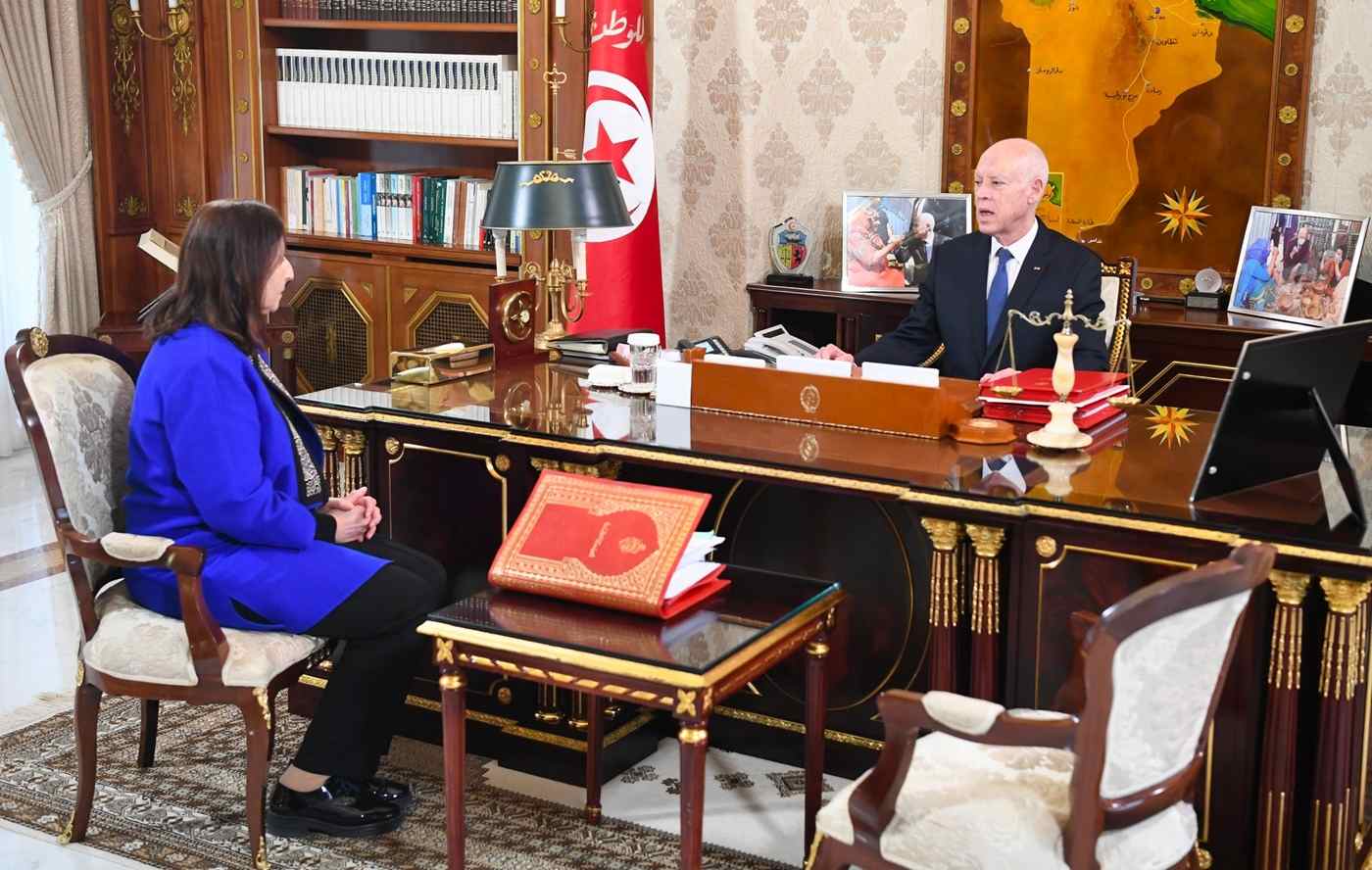On Wednesday, April 2, 2025, President Kais Saied met at the Carthage Palace with Prime Minister Sarra Zaafrani Zenzeri for a meeting devoted to preparing the upcoming Cabinet meeting. This gathering provided the head of state with an opportunity to reaffirm his vision of governance that is swift, clear, and unambiguous, particularly in the legislative domain.
Kais Saied stressed that the Tunisian revolution cannot tolerate half-measures or the adoption of laws without concrete implementation. For him, laws must not remain dead letters but should be instruments for real change, breaking away from the “illegitimate” legacies of the past that the people, according to his words, have already rejected.
The president also took aim at those fueling the discourse of crisis and despair, accusing them of seeking to sow confusion. He argued that they should instead propose concrete solutions, rather than perpetuating a climate of discouragement.
In this context, Kais Saied said that it is time to remove those he labels as “agents of influence” from decision-making centers, claiming they are controlled by external forces dictating their “unmasked behaviors” and “biased analyses.” He condemned the manipulation of numbers fabricated abroad and disseminated by the media to distort the perception of Tunisia’s reality, insisting that these actors are discredited domestically and despised by those who support them externally.
The president also underscored the importance of not confusing political stability with mere governmental stability, pointing to those who, in his view, deliberately blur the lines to foster confusion.
Concluding on a determined note, Kais Saied emphasised the urgency of accelerating the pace of achievements, affirming that what will be built through the efforts of Tunisians will continue to reveal the intentions of those who have already been exposed. He ended by symbolically referring to the silent fall of dead leaves, an image of these opponents whose voices no longer carry weight.
This meeting takes place in a political context marked by intense debates over governance, the legitimacy of institutions, and the implementation of promised reforms. The president intends to establish a more rapid pace for the state’s actions while reinforcing his stance of rupture with past practices.
